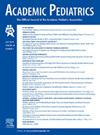角色演变:青少年与父母和医疗保健提供者共同决策的观点。
IF 2.8
3区 医学
Q1 PEDIATRICS
引用次数: 0
摘要
涉及青少年的共同决策(SDM)提出了独特的挑战。为了充分支持和评估包括青少年、父母和医疗保健提供者在内的SDM,必须了解青少年的观点。本研究的目的是描述的观点与慢性健康状况的青少年分享医疗决策与他们的父母和医疗保健提供者。方法:对12 ~ 17岁的慢性健康问题青少年进行半结构化的定性访谈。访谈问题侧重于青少年的决策经验。此外,对SDM的概念进行了深入的探讨。对记录下来的访谈进行编码,并结合归纳和演绎编码对其进行主题分析。结果:16名青少年参与了定性访谈(中位年龄14岁,62%为男性,62%为非白人)。对访谈的分析揭示了四个主题,突出了青少年对SDM过程的看法:定义青少年在决策中的角色和参与程度,理解复杂的信息,分享青少年的独特观点,达成共识。在这项研究中,随着青少年获得独立性、经验和对健康信息的理解,他们越来越积极地参与更复杂的决策。青少年们讨论了在最终决定中承认他们的观点的重要性。他们还认为,确定他们与父母和医疗保健提供者的共同价值观很重要。讨论:这项工作的结果表明,患有慢性健康状况的青少年在SDM中扮演着不断变化的角色。这些数据可用于定制和改进SDM,通过积极参与、个性化沟通和包容青少年价值观来满足青少年需求。本文章由计算机程序翻译,如有差异,请以英文原文为准。
Evolving Roles: Adolescent Perspectives on Shared Decision Making With Their Parents and Health Care Providers
Objective
Shared decision making (SDM) involving adolescents presents unique challenges. To adequately support and evaluate SDM that includes adolescents, parents, and health care providers, it is imperative to understand adolescent perspectives. This study aims to describe the perspectives of adolescents with chronic health conditions regarding sharing medical decisions with their parents and health care providers.
Methods
Adolescents ages 12 to 17 years with chronic health conditions participated in semistructured qualitative interviews via video conference. Interview questions focused on adolescents’ decision-making experiences. Additionally, concepts of SDM were explored in depth. Transcribed interviews were coded and thematically analyzed using a combination of inductive and deductive coding.
Results
Sixteen adolescents participated in qualitative interviews (median age 14 years, 62% male, 62% non-white). Analysis of interviews revealed 4 themes that highlight adolescent perspectives on the process of SDM: defining the adolescent’s role and degree of participation in decisions, understanding complex information, sharing the adolescent’s unique perspective, and coming to consensus. Adolescents in this study described increasingly active participation in more complex decisions as they gained independence, experience, and understanding of health information. Adolescents discussed the importance of their perspectives being acknowledged in the final decision. They also felt it was important to identify values they have in common with their parents and health care providers.
Conclusions
Results from this work indicate that adolescents with chronic health conditions experience evolving roles in SDM. These data can be used to tailor and improve SDM to address adolescent needs through active engagement, personalized communication, and inclusion of adolescent values.
求助全文
通过发布文献求助,成功后即可免费获取论文全文。
去求助
来源期刊

Academic Pediatrics
PEDIATRICS-
CiteScore
4.60
自引率
12.90%
发文量
300
审稿时长
60 days
期刊介绍:
Academic Pediatrics, the official journal of the Academic Pediatric Association, is a peer-reviewed publication whose purpose is to strengthen the research and educational base of academic general pediatrics. The journal provides leadership in pediatric education, research, patient care and advocacy. Content areas include pediatric education, emergency medicine, injury, abuse, behavioral pediatrics, holistic medicine, child health services and health policy,and the environment. The journal provides an active forum for the presentation of pediatric educational research in diverse settings, involving medical students, residents, fellows, and practicing professionals. The journal also emphasizes important research relating to the quality of child health care, health care policy, and the organization of child health services. It also includes systematic reviews of primary care interventions and important methodologic papers to aid research in child health and education.
 求助内容:
求助内容: 应助结果提醒方式:
应助结果提醒方式:


